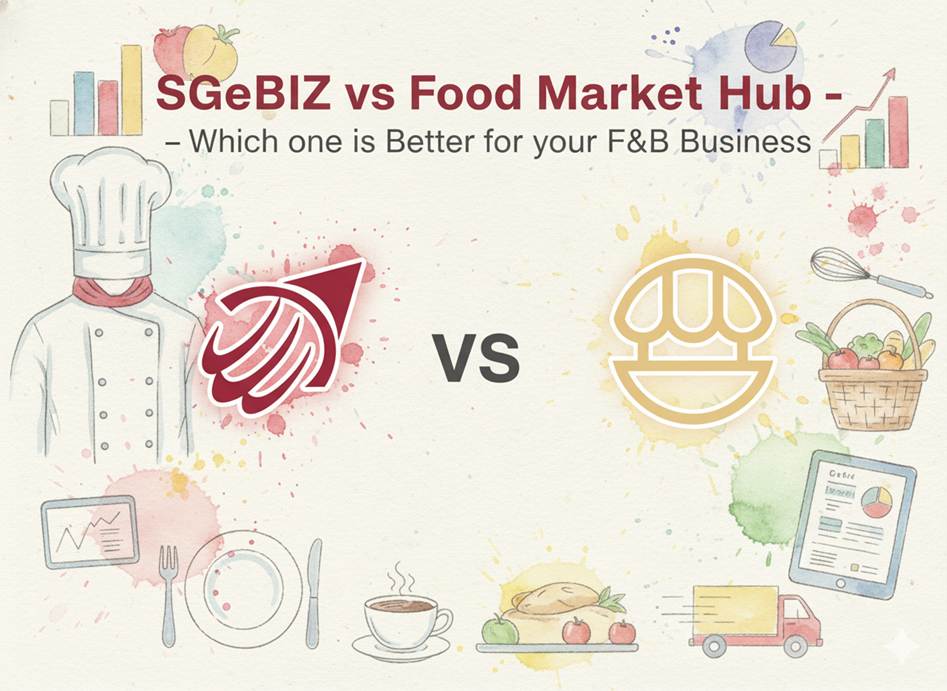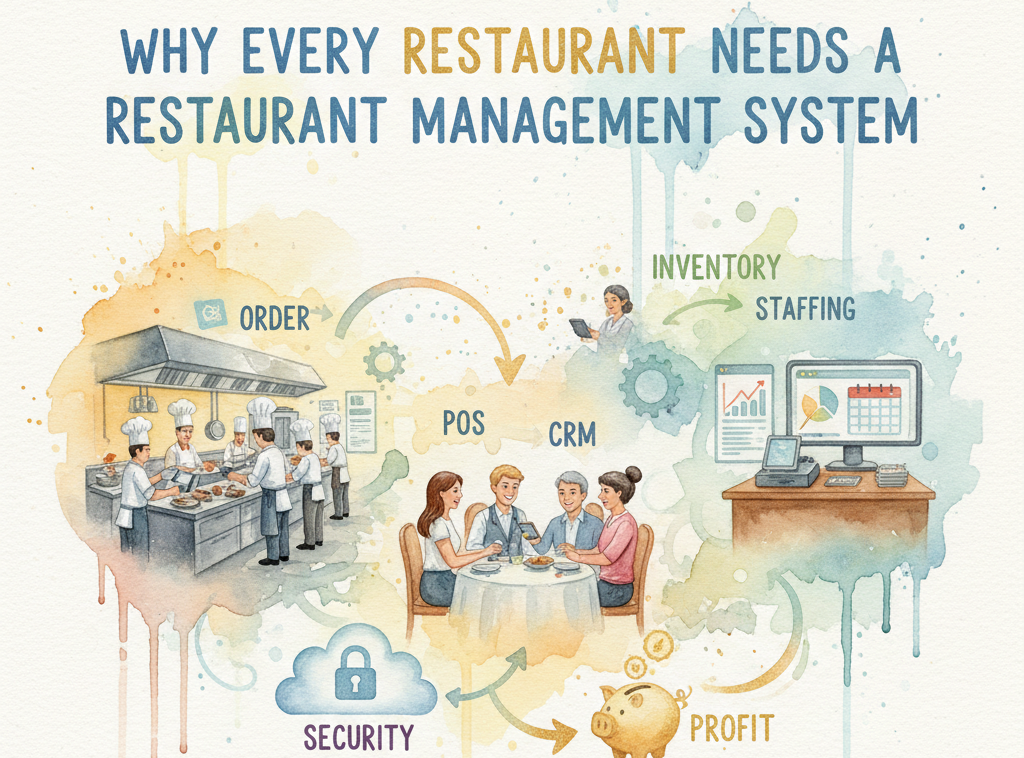Accelerate Your Business with Malaysia's e-Invoicing Revolution: A Step-by-Step Transition Guide by Food Market Hub

Exciting news has hit the business world in Malaysia! The Lembaga Hasil Dalam Negeri (LHDN) has taken a leap into the digital future by introducing its e-Invoicing system. This transformative move aims to revolutionise invoicing processes for businesses, making them faster, more accurate, and environmentally friendly. In this blog, we will explore the implications of Malaysia's e-Invoicing launch and guide you step-by-step on how to transition seamlessly with the expert assistance of Food Market Hub, a leading platform that empowers businesses in the F&B industry.
Malaysia's Digital Revolution: The e-Invoicing System
As businesses worldwide embrace technology-driven solutions, Malaysia is now at the forefront of this digital revolution with the implementation of the e-Invoicing system. By leveraging digital automation, businesses can bid farewell to traditional paper-based invoicing and usher in a new era of efficiency and transparency.
With the e-Invoicing system, businesses can reap a multitude of benefits. Faster invoice processing means quicker payment cycles, leading to improved cash flow management. The accuracy of e-Invoices reduces the risk of errors and disputes, enhancing business credibility and customer relationships. Moreover, the eco-friendly nature of e-Invoicing aligns with sustainable practices, contributing to a greener future for businesses.
Embracing Change: The Need for Transition
To take full advantage of the electronic Invoicing system, businesses in Malaysia must transition from traditional invoicing methods. Embracing this change is crucial to remain competitive and compliant in the evolving business landscape. Understanding the step-by-step process of e-Invoicing integration is essential to ensure a smooth transition.
Step-by-Step Guide: Participating in LHDN's e-Invoicing System
[a] Registering for LHDN's e-Invoicing System:The first step is to register your business with LHDN. Visit the official website or contact your local LHDN office to initiate the registration process. Provide essential business details, including company name, registration number, contact information, and bank account details.
[b] Assessing e-Invoicing Solutions: While transitioning, consider suitable e-Invoicing solutions that align with your business needs. Food Market Hub is a platform that empowers businesses in the F&B industry and provides a user-friendly platform for seamless e-Invoicing while streamlining all business operations.
[c] Ensuring Compliance with e-Invoicing Regulations: Once registered, ensure that your invoicing processes comply with the e-Invoicing regulations set by LHDN. Adhering to these regulations is vital for a smooth transition.
[d]Generating e-Invoices: Utilise your chosen e-Invoicing platform, such as Food Market Hub, to effortlessly create e-Invoices. The platform automatically populates necessary data, minimising manual entry and reducing errors.
[e] Transmitting e-Invoices to LHDN and Buyers: Leverage the e-Invoicing platform to securely transmit e-Invoices to both LHDN and your buyers, streamlining the payment process and minimising disputes.
[f] Tracking and Managing e-Invoices: Monitor e-Invoice status in real-time through the e-Invoicing platform, enabling you to optimise cash flow and proactively manage your receivables.
Essential Checklist for Preparing Ahead of Malaysia's e-Invoice Initiative
As Malaysia's e-Invoicing initiative takes effect from June 2024, businesses need to be proactive in preparing for a seamless transition to this digital invoicing system. By following this essential checklist, businesses can ensure they are well-prepared to capitalise on the benefits and stay compliant with the new regulations:
- Familiarise with e-Invoicing Regulations: Take the time to understand the e-Invoicing regulations set forth by LHDN. Study the data requirements, invoice formats, and timelines for submission. Being well-informed will facilitate a smoother adoption of the e-Invoice system and prevent last-minute hiccups.
- Assess Current Invoicing Processes: Conduct an internal assessment of your current invoicing processes. Identify areas that need improvement and determine the efficiency of your invoicing cycle. This evaluation will help you identify bottlenecks and assess how e-Invoicing can address these issues.
- Choose a Suitable e-Invoicing Solution: Select an e-Invoicing platform that aligns with your business needs and industry requirements. Explore reputable providers like Food Market Hub that offer tailored solutions for your specific industry.
- Validate and Organize Data: Ensure that your business data, including customer details and product information, are accurate and up to date. Validate and clean your data to avoid errors during e-Invoice generation and transmission.
- Train Employees: Equip your staff with the necessary knowledge and skills to utilize the chosen e-Invoicing platform effectively. Conduct training sessions to familiarize them with the new system, ensuring a smooth adoption across all relevant departments.
- Conduct Trial Runs: Perform trial runs of the e-Invoicing process using the selected platform. This allows you to identify any potential issues and make necessary adjustments before going live with the e-Invoice system.
- Communicate with Suppliers and Customers: Proactively communicate with your suppliers and customers about the upcoming e-Invoice initiative. Inform them of the changes in invoicing procedures and timelines, fostering a collaborative and efficient invoicing ecosystem.
- Stay Updated with LHDN Guidelines: Continuously monitor updates and guidelines issued by LHDN regarding the e-Invoicing initiative. Stay informed about any changes or additional requirements to remain compliant.
Malaysia's e-Invoicing initiative marks a significant milestone in the country's pursuit of a more digital, efficient, and sustainable business environment. As the digital revolution takes centre stage, businesses must adapt and capitalise on the benefits that e-Invoicing offers. The step-by-step guide and essential checklist serve as indispensable tools for businesses, empowering them to transition seamlessly into the world of e-Invoicing.
With the support of Food Market Hub, businesses can harness the power of technology to optimise online invoicing processes and amplify growth. By participating in this transformational journey, businesses not only unlock the advantages of streamlined invoicing but also contribute to a greener, more sustainable future.










